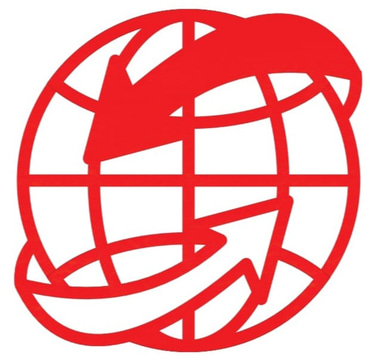Green Coffee Export Indonesia
Green Coffee Export Indonesia Toraja: A Hidden Gem in the Global Coffee Trade When it comes to premium-quality green coffee exports, Indonesia continues to earn its place among the top players in the global coffee market. Among its many famous coffee-producing regions, Toraja, located in the highlands of South Sulawesi, is a true standout. Known for its rich culture, high elevation, and unique processing methods, Toraja has become synonymous with distinctive, high-quality Arabica coffee beans. In this article, we explore the growing potential of green coffee export from Indonesia, specifically Toraja, and why international buyers and roasters should pay close attention to this exceptional origin. What Makes Toraja Green Coffee So Special? Toraja is not just a region—it’s a legacy. Situated at altitudes between 1,200 to 1,900 meters above sea level, Toraja's mountainous terrain and volcanic soil provide the perfect environment for cultivating high-quality Arabica beans. Distinctive Flavor Profile Toraja coffee is globally recognized for its full body, low to medium acidity, and complex flavor profile, often described with notes of ripe dark fruit, cocoa, spices, and earthy undertones. Some micro-lots even offer subtle floral or citrusy hints, depending on the elevation and processing method. These unique characteristics make Toraja green coffee a favorite for specialty roasters looking for depth, complexity, and authenticity in their single-origin offerings. Why Choose Green Coffee Export from Indonesia’s Toraja Region? 1. High Altitude and Microclimates Toraja’s elevation and cool climate slow down the coffee cherry’s ripening process. This results in denser beans with more concentrated sugars and nuanced flavors—ideal for specialty grade green coffee. 2. Traditional Farming Practices Many Toraja coffee farmers use organic and sustainable farming methods, passed down through generations. Their deep respect for the land is reflected in their careful hand-picking, sorting, and sun-drying processes, which preserve bean integrity and flavor. 3. Unique Processing Methods Toraja is one of the few regions in the world that still uses wet-hulling (giling basah), a traditional Indonesian method that gives the coffee its signature boldness and earthy notes. However, there’s also a rise in washed, honey, and natural processing methods that cater to diverse international tastes. Growing Demand in the Global Market As the specialty coffee market continues to expand, buyers are seeking origin-specific, traceable, and ethically sourced green coffee. Toraja checks all these boxes. Traceability: Many Toraja cooperatives offer full transparency, from farm to export. Certifications: Coffee exporters in Indonesia now increasingly meet organic, Rainforest Alliance, or Fair Trade certifications, which appeal to international buyers. Rising Recognition: Toraja coffee is gaining attention at global coffee expos and cupping competitions, positioning it as a rising star in the green coffee export sector. Key Markets for Toraja Green Coffee Export Toraja coffee has already gained a loyal following in countries such as: Japan – Known for its appreciation of smooth, balanced coffees. Toraja coffee has been popular here for decades. South Korea – Specialty cafés and roasters are seeking exclusive micro-lots and unique flavor profiles. United States & Canada – Third-wave coffee roasters are always looking for origin-specific beans with rich stories and distinct cup profiles. Europe – Especially in Germany, the Netherlands, and Scandinavia, where coffee culture is highly developed and consumers are willing to pay a premium for quality and sustainability. How to Export Green Coffee from Toraja, Indonesia If you are a producer or cooperative in Toraja looking to reach the global market, here are key steps in the green coffee export process: 1. Ensure Coffee Meets Export Standards Green coffee must be graded, cleaned, and packaged properly according to the destination country’s import requirements. Quality control is crucial—cupping scores of 80+ are generally expected for specialty-grade beans. 2. Work with Licensed Exporters In Indonesia, green coffee can only be exported by entities that have an exporter’s license (SIUP) and are registered with the Indonesian Ministry of Trade. Partnering with a reputable exporter ensures compliance and smoother logistics. 3. Focus on Traceability and Documentation International buyers value transparency. Ensure you can provide: Farm-level data (altitude, varietal, harvest dates) Processing details Cupping notes and scores Certificates (if available) 4. Build Relationships with Buyers Join international trade shows such as: Specialty Coffee Expo (USA) World of Coffee (Europe) SCAI Expo (Indonesia) These are excellent opportunities to connect directly with roasters, importers, and green coffee brokers. How International Buyers Can Import Toraja Green Coffee For importers or roasters looking to purchase green coffee from Toraja, consider the following steps: 1. Identify Trusted Indonesian Suppliers Look for suppliers with experience in international logistics and a strong reputation for quality, consistency, and communication. Many exporters from Toraja also offer custom processing for buyers with specific flavor preferences. 2. Request Samples and Cup the Coffee Always request green coffee samples to evaluate before making a bulk purchase. Cupping is essential to ensure the flavor profile matches your expectations and brand positioning. 3. Negotiate Volume and Shipping Terms Discuss minimum order quantities (MOQ), shipping terms (FOB or CIF), and logistics timelines. Indonesian exporters typically ship via container from ports in Makassar, Surabaya, or Jakarta. 4. Plan for Seasonal Availability Toraja’s harvest season usually runs from May to October, with peak exports happening in the late third and early fourth quarter. Planning your purchases around this window ensures better availability and pricing. Marketing Toraja Green Coffee in Your Region Once you’ve secured your shipment of Toraja green coffee, how do you market it effectively? Tell the Story: Use visuals and narratives about the region, farmers, and processing method. Highlight Cup Profile: Promote tasting notes that appeal to your audience—bold, fruity, earthy, or floral. Limited Edition Batches: Sell Toraja coffee as a seasonal or exclusive micro-lot to generate demand. Offer Brewing Guidance: Suggest specific roast levels or brew methods (e.g., pour-over, French press) that best showcase Toraja’s unique flavors.
Green Coffee Export Indonesia
3/27/20251 min read


My post content
